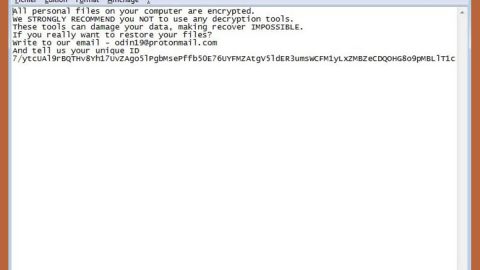
You’ve all seen the ads on TV for programs to make your computer run faster. They go something like this: “Spyware, malware, pop-ups and spam have slowed your computer to a crawl.” The remedy is go to a Web site for a free check-up, which turns out not to be free. They’ll fix one problem, but you have to buy the program to get the rest of the repairs.
Well, from my own experience I have a piece of advice that borrows one of these ad’s taglines: “Don’t Waste your Money.” These programs are no better than what you can easily find for free on the Web.
Case in point: For years I bought the Norton Anti-virus software and dutifully paid a yearly update fee, believing that the program would protect my computer. And then it didn’t. One day, not long after an update, a nasty virus invaded my computer. It trashed my hard drive completely. (Fortunately I had been backing up my files to an external hard drive. you should always do this.)
Angry that a product I’d long paid for and believed in failed me, I resolved not to re-install Norton on my new hard drive. On the advice of a friend who works in IT at the Herald, I downloaded the free version of AVG Anti-virus and have kept it updated ever since, along with daily scheduled scans. AVG has flagged viruses a number of times and removed them before they could do any harm.
Of course, there’s software you should buy, but in my experience utilities are not those programs. Sure there are malware, pop-ups and viruses out there and over time your computer’s registry gets clogged up with things you don’t need. And there’s temp files and overloaded caches and all these do slow down your computer.
Like the ads say, my computer had started running really slowly. so I set out to tune it up and decided to do it with the best free and legal utility programs I could download.
Noticing all the temporary files on my computer, I searched and found a highly touted free program called CCleaner. It found 2,174 temporary files, 328 cookies, big Internet caches and numerous other things I didn’t need – a total of 106.2 MB. I ran the cleaner and the clutter was erased.
Next I tried Wise Registry Cleaner, which has gotten high ratings on CNET and other Web sites that rate free utility programs. Wise found 305 registry problems on my computer, 290 of which were deemed safe to remove. my computer ran noticeably faster after the registry was fixed.
Next up was a disk defragmenter, which organizes your files more consecutively, so the hard drive doesn’t have to work so hard to find them. It’s something all computer users should do once a month or so, as it extends the life of your hard drive. I chose Auslogics Disk Defrag free program for the task. A quick analysis found that 21 percent of the files on my main hard drive were fragmented. The program analyzed 88,421 files and defragged 19,457 files in an hour and a half.
Next was a checkup for spyware and malware. For that I downloaded Spybot Search and destroy, which along with AdAware are the top free spyware programs. Spybot found 10 pieces of spyware on my computer and deleted them.
The next program for my tuneup was WinUtilities. This program performs a variety of tasks with its 24 modules, such as disk cleaning, defragging and file shredding tools. but I was after two things – optimizing memory and finding duplicate files. I ran the one-click maintenance feature and the memory optimizer and I noticed some further speed improvement on my PC.
The final tuneup program I downloaded was AppBooster, a handy program designed to additionally boost the speed of your computer by shutting down unneeded applications, processes and Windows features. It’s geared toward the average user and shuts down programs you designate for as long as you run the program. This is especially good if you’re doing something processor-intensive such as video editing or playing a video game. And minimizing programs I wasn’t using really boosted my computer speed.
You can download all these programs and other free utilities from CNET or directly from the maker’s Web sites. All are free, but you can upgrade to paid “pro” versions of a few of the programs. but I saw no need to do so.
My tuneup is done, and now it’s time for the testimonial: “my pokey computer now runs way faster. It’s incredible and, best of all, it didn’t cost me a penny.”










